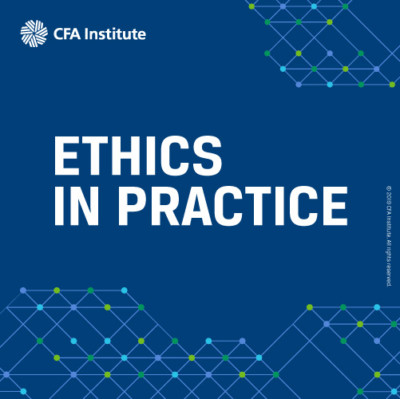Ethics in Practice: Investment Account Relationships. Case and Analysis–Week of 16 September
Check the analysis of this week’s case (16 September) to see if you made the right choice.
Case
Archer is an investment adviser who began his career as a portfolio manager at SR Wealth Management (SRWM). One of his accounts at SRWM was the joint investment account of a young couple. When Archer leaves SRWM to join YC Capital, a competitor, the couple’s account is assigned to another adviser at SRWM. Two years after leaving SRWM, Archer bumps into Lucy, the wife of the couple who was his former client, at a social event. She tells Archer that she and her husband are separated and in the process of divorcing. She also shares that she has been unhappy with the new adviser SRWM assigned to manage the couple’s joint account after Archer left because it has performed poorly, and the fees seem to have increased substantially.
Archer offers to look over the couple’s SRWM account information and statements to see whether there is a problem. He is shocked to see that the investments are not in line with the information in the couple’s Investment Policy Statement, and that there seems to be a high level of turnover in the account. Archer asks Lucy to dinner and shares his thoughts about the issues he has found with couple’s account. After that, Archer and Lucy begin dating. Shortly after beginning the relationship with Archer, Lucy withdraws the bulk of the assets from her and her estranged husband’s SRWM account and opens a personal account at Archer’s new firm, YC Capital, with Archer as the portfolio manager. Archer does not disclose to his employer that he and Lucy are in a relationship. Archer’s actions are
- inappropriate because he violates his duty of loyalty to Lucy’s husband as a former client.
- inappropriate because he accesses and examines records from his former employer and criticizes a former colleague.
- inappropriate because he violates his duty to disclose conflicts of interest by failing to inform his employer about his personal relationship with Lucy.
- appropriate.
- none of the above.
Analysis
This case relates to disclosure of conflicts of interest. CFA Institute Standard VI(A): Disclosure of Conflicts requires CFA Institute members to make full and fair disclosure of all matters that could reasonably be expected to interfere with their duties to clients or employers. In this case, Archer’s personal relationship with his client is a potential conflict that should be disclosed to his employer because he may have an incentive to neglect other advisory clients in favor of Lucy’s account as a way to enhance their relationship.
Archer is not violating confidentiality or any duty to his former employer by examining the investment records of his former client because the client provided those records to him; he did not access them inappropriately. He does not have a duty of loyalty to Lucy’s husband, a former client, because he is no longer his investment adviser. Presumably, Archer understands that Lucy is using joint marital assets to open a personal account, without the consent of her current husband. If Archer knows that Lucy is acting in contravention of the law or a court order or is perpetrating a fraud against her husband in using those assets to open the account, Archer would also be violating Standard I(D): Professional Misconduct, which prohibits members from engaging in any professional conduct involving dishonesty, fraud, or deceit. Without further information indicating any fraud, deceit, or dishonesty, choice C is the best response.
This case is based on facts provided by Tanuj Khosla, CFA, CAIA.
Let us know what you think of Ethics in Practice by taking this short survey.
Have an idea for a case for us to feature? Send it to us at [email protected].
More About the Ethics in Practice Series
Just as you need to practice to become proficient at playing a musical instrument, public speaking, or playing a sport, practicing assessing and analyzing situations and making ethical decisions develops your ethical decision-making skills. The Ethics in Practice series gives you an opportunity to “exercise” your ethical decision-making skills. Each week, we post a short vignette, drawn from real-world circumstances, regulatory cases, and CFA Institute Professional Conduct investigations, along with possible responses/actions. We then encourage you to assess the case using the CFA Institute Ethical Decision-Making Framework and through the lens of the CFA Institute Code of Ethics and Standards of Professional Conduct.
Image Credit: ©CFA Institute


C
C
My Option is B.Because it unethical to to critize a colleague before a client.Whatever discovery he made should have been discussed with the former colleague.
My suggested answer is B. Archer’s actions of accessing the former employer’s records without approval is a violation of CFA code. Also criticizing a former colleague who is probably a charterholder could bring the charter to disrepute.
inappropriate because he violates his duty to disclose conflicts of interest by failing to inform his employer about his personal relationship with Lucy.
I think the answer should be B because Archer accessed the former employer’s information without their consent.
B
C because he does not disclose a conflict of interest to his current employer.
C – it is unethical of archer not disclosing his level of personal relationship to his new employers. Notably, archer could also benefit personally from the investment without the client or employer suspecting of his actions.
C because he should tell about the current status and provide his detail to his employer .it is unethical to not disclose the information which required .